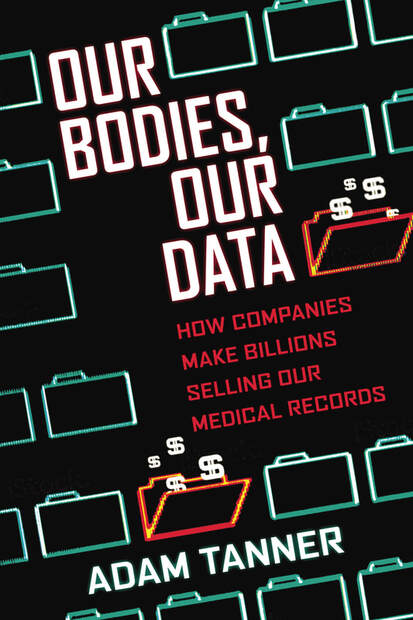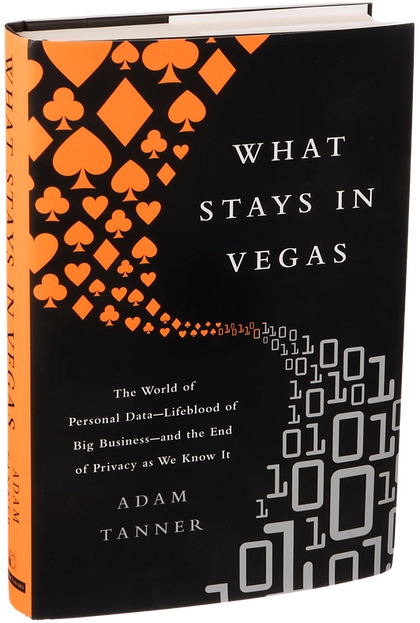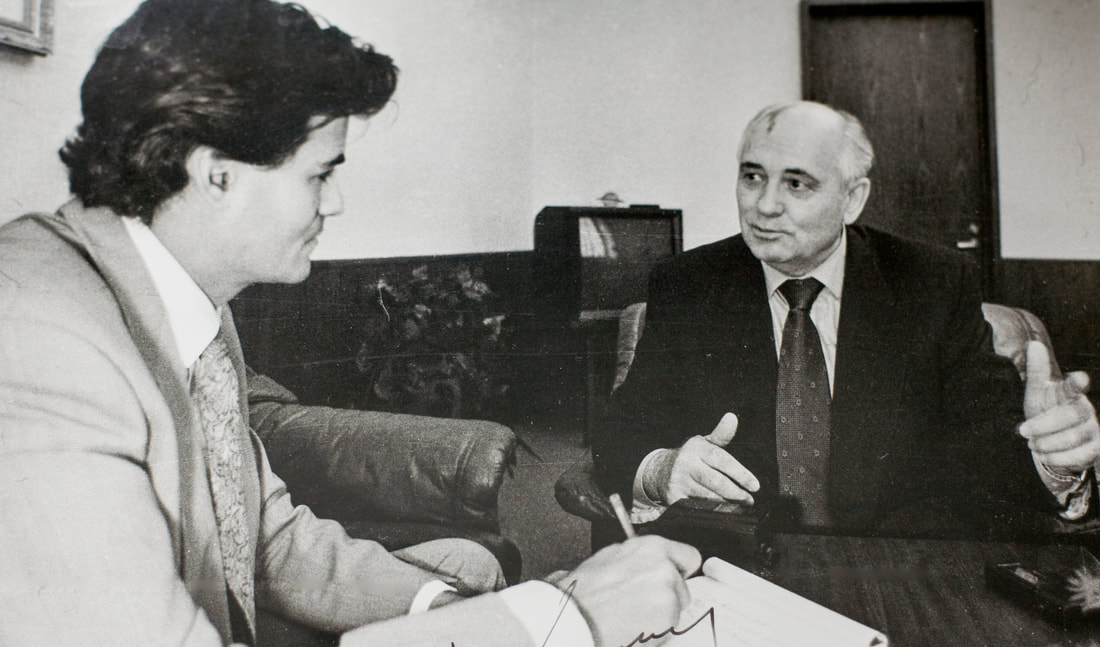Writer and lecturer Adam Tanner is the author of Our Bodies, Our Data: How Companies Make Billions Selling Our Medical Records and What Stays in Vegas: The World of Personal Data - Lifeblood of Big Business - and the End of Privacy as We Know It. He has been an associate and fellow at Harvard University since 2011.
Books |
|
|
Hidden to consumers, patient medical data has become a multi-billion-dollar worldwide trade industry between our health-care providers, drug companies, and a complex web of middlemen. This great medical-data bazaar sells copies of the prescription you recently filled, your hospital records, insurance claims, blood-test results, and more, stripped of your name but possibly with identifiers such as year of birth, gender, and doctor. As computing grows ever more sophisticated, patient dossiers become increasingly vulnerable to reidentification and the possibility of being targeted by identity thieves or hackers. Paradoxically, comprehensive electronic files for patient treatment—the reason medical data exists in the first place—remain an elusive goal. Even today, patients or their doctors rarely have easy access to comprehensive records that could improve care. In the evolution of medical data, the instinct for profit has outstripped patient needs. This book tells the human, behind-the-scenes story of how such a system evolved internationally. It begins with New York advertising man Ludwig Wolfgang Frohlich, who founded IMS Health, the world’s dominant health-data miner, in the 1950s. IMS Health - since renamed IQVIA, now gathers patient medical data from tens of billions of transactions annually from more than 100 countries. Our Bodies, Our Data uncovers some of Frohlich’s hidden past and the story of what happened in the following decades. The book seeks to spark debate on how we can best balance the promise big data offers to advance medicine and improve lives while preserving the rights and interests of every patient. We, the public, deserve a say in this discussion. After all, it’s our data. |
The greatest threat to privacy today is not the NSA, but good-old American companies. Internet giants, leading retailers, and other firms are voraciously gathering data with little oversight from anyone. In Las Vegas, no company knows the value of data better than Caesars Entertainment. Many thousands of enthusiastic clients pour through the ever-open doors of their casinos. The secret to the company’s success lies in their one unrivaled asset: they know their clients intimately by tracking the activities of the overwhelming majority of gamblers. They know exactly what games they like to play, what foods they enjoy for breakfast, when they prefer to visit, who their favorite hostess might be, and exactly how to keep them coming back for more. Caesars’ dogged data-gathering methods have been so successful that they have grown to become the world’s largest casino operator, and have inspired companies of all kinds to ramp up their own data mining in the hopes of boosting their targeted marketing efforts. Some do this themselves. Some rely on data brokers. Others clearly enter a moral gray zone that should make American consumers deeply uncomfortable. We live in an age when our personal information is harvested and aggregated whether we like it or not. And it is growing ever more difficult for those businesses that choose not to engage in more intrusive data gathering to compete with those that do. Tanner’s timely warning resounds: Yes, there are many benefits to the free flow of all this data, but there is a dark, unregulated, and destructive netherworld as well. |
Biography
|
A writer and former foreign correspondent, Adam Tanner is an expert on the impact of Europe and the United States on Asia, Latin America and Africa through colonialism, empire and economic engagement, and the influence of India, China and other Asian nations on the development of Western history.
His books "What Stays in Vegas:" and "Our Bodies, Our Data" follow this globalized focus by investigating the largely hidden worldwide market in personal data. |
He continues to write on privacy and technology as a contributing editor at Consumer Reports. He has been an associate and fellow at Harvard's Institute for Quantitative Social Science for more than a decade.
He regularly lectures for Regent Seven Seas Cruises and Smithsonian Journeys as well as universities and public forums across North and South America, Europe, Asia, Africa and Australia. |
Adam has investigated everything from Vladimir Putin's KGB service to September 11 ringleader Mohammed Atta, from steroids in sports to the Abu Ghraib prison abuse ringleaders and the life of Serbia's fugative General Ratko Mladic on the run. More recently, he has written about an American who spied for the East Germany Stasi.
He has interviewed Joe Biden, Barack Obama, Jimmy Carter, Al Gore, Boris Yeltsin, Mikhail Gorbachev, Henry Kissinger, James Baker, Robert McNamara, Ross Perot, Gary Hart, H.R. Haldeman, Jerry Brown, Gavin Newsom, Leni Riefenstahl, Edward Teller, Clint Eastwood, Warren Beatty, Shirley Temple Black, Arnold Schwarzenegger, Ralph Fiennes, Chevy Chase, Richard Gere, Johnnie Cash, Jimmy Page, Dave Brubeck, Quincy Jones, Graham Nash, Gregg Allman, Ray Manzarek, Les Paul, Ravi Shankar, William F. Buckley, Aleksandr Solzhenitsyn, Garry Kasparov, Evel Knievel, Yogi Berra, Bob Feller, Willie McCovey and Willie Mays. He has corresponded with former Bosnian Serb leader Radovan Karadzic and Unabomber Ted Kaczynski, and interviewed Crips gang founder Stanley "Tookie" Williams shortly before his execution.
His photos have been widely published in books, magazines and newspapers, including in the New York Times, Washington Post and Germany's Bild tabloid. He is a contributing photographer to Ullstein Bild, and some of his images can be seen here. The United Nations used one of his images of Iguazu Falls in Brazil for a UNESCO postage stamp.
He has been a Rockefeller Foundation Bellagio artist-in-residence and been awarded an Abe Fellowship for research in Japan from the Social Science Research Council; a “Reporting Award” from New York University’s Journalism Institute; the 2016–17 Snedden Chair in Journalism at the University of Alaska Fairbanks; and was part of a large Reuters team cited as a 2012 Pulitzer finalist in international reporting for “well-crafted reports on the momentous revolution in Libya that went beyond battlefield dispatches to tell the wider story of discontent, conflict and the role of outside powers.” The Washington Post named his book "What Stays in Vegas" one of 50 notable works of non-fiction in 2014.
In his spare time, Adam is a passionate amateur musician with a focus on jazz and Indian classical music. Here is his composition "Anchor Stones," performed by some talented Boston-area musicians.
Early in his career he wrote or co-wrote a series of Frommer's guidebooks, including these:
He has interviewed Joe Biden, Barack Obama, Jimmy Carter, Al Gore, Boris Yeltsin, Mikhail Gorbachev, Henry Kissinger, James Baker, Robert McNamara, Ross Perot, Gary Hart, H.R. Haldeman, Jerry Brown, Gavin Newsom, Leni Riefenstahl, Edward Teller, Clint Eastwood, Warren Beatty, Shirley Temple Black, Arnold Schwarzenegger, Ralph Fiennes, Chevy Chase, Richard Gere, Johnnie Cash, Jimmy Page, Dave Brubeck, Quincy Jones, Graham Nash, Gregg Allman, Ray Manzarek, Les Paul, Ravi Shankar, William F. Buckley, Aleksandr Solzhenitsyn, Garry Kasparov, Evel Knievel, Yogi Berra, Bob Feller, Willie McCovey and Willie Mays. He has corresponded with former Bosnian Serb leader Radovan Karadzic and Unabomber Ted Kaczynski, and interviewed Crips gang founder Stanley "Tookie" Williams shortly before his execution.
His photos have been widely published in books, magazines and newspapers, including in the New York Times, Washington Post and Germany's Bild tabloid. He is a contributing photographer to Ullstein Bild, and some of his images can be seen here. The United Nations used one of his images of Iguazu Falls in Brazil for a UNESCO postage stamp.
He has been a Rockefeller Foundation Bellagio artist-in-residence and been awarded an Abe Fellowship for research in Japan from the Social Science Research Council; a “Reporting Award” from New York University’s Journalism Institute; the 2016–17 Snedden Chair in Journalism at the University of Alaska Fairbanks; and was part of a large Reuters team cited as a 2012 Pulitzer finalist in international reporting for “well-crafted reports on the momentous revolution in Libya that went beyond battlefield dispatches to tell the wider story of discontent, conflict and the role of outside powers.” The Washington Post named his book "What Stays in Vegas" one of 50 notable works of non-fiction in 2014.
In his spare time, Adam is a passionate amateur musician with a focus on jazz and Indian classical music. Here is his composition "Anchor Stones," performed by some talented Boston-area musicians.
Early in his career he wrote or co-wrote a series of Frommer's guidebooks, including these:




